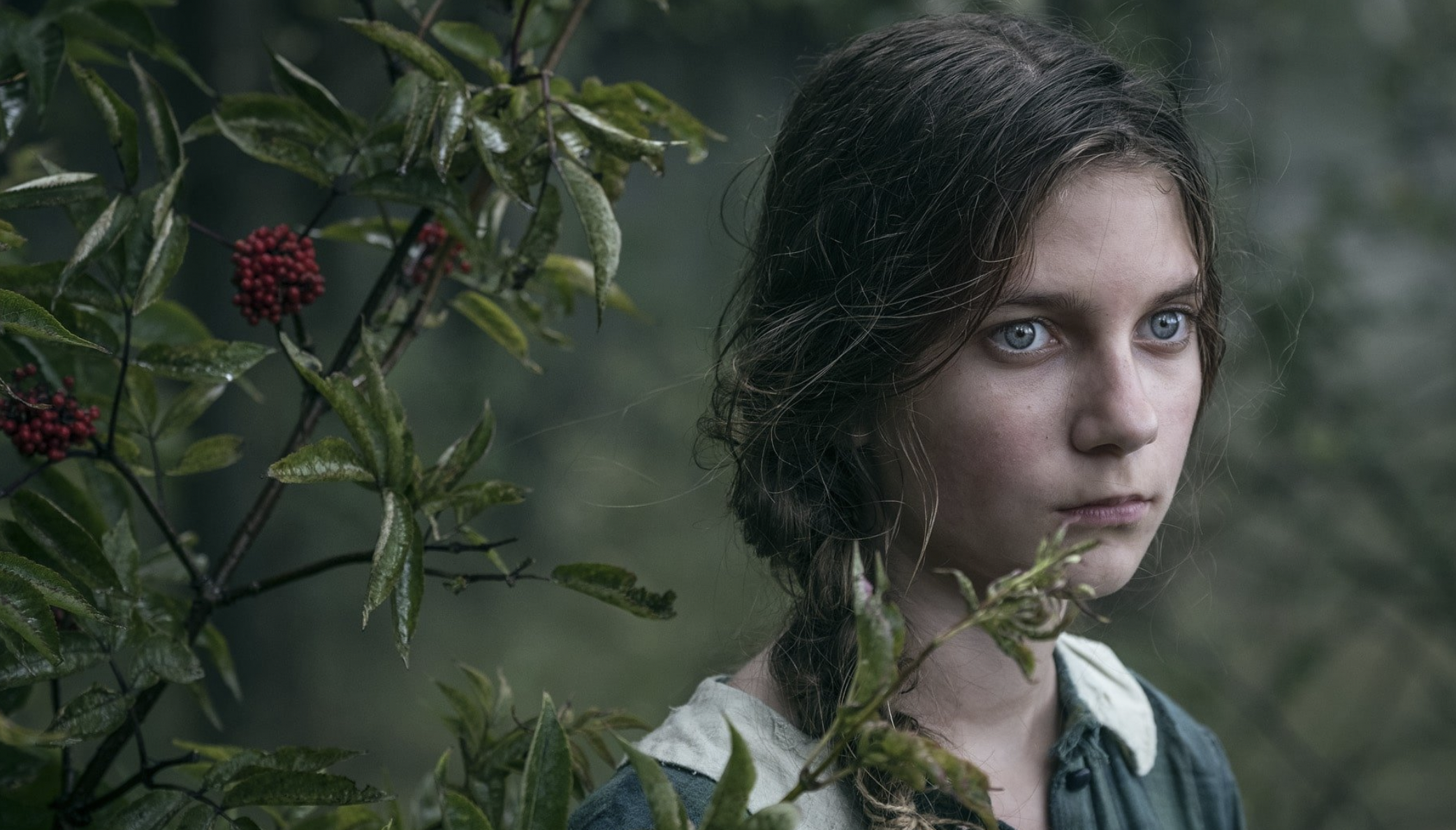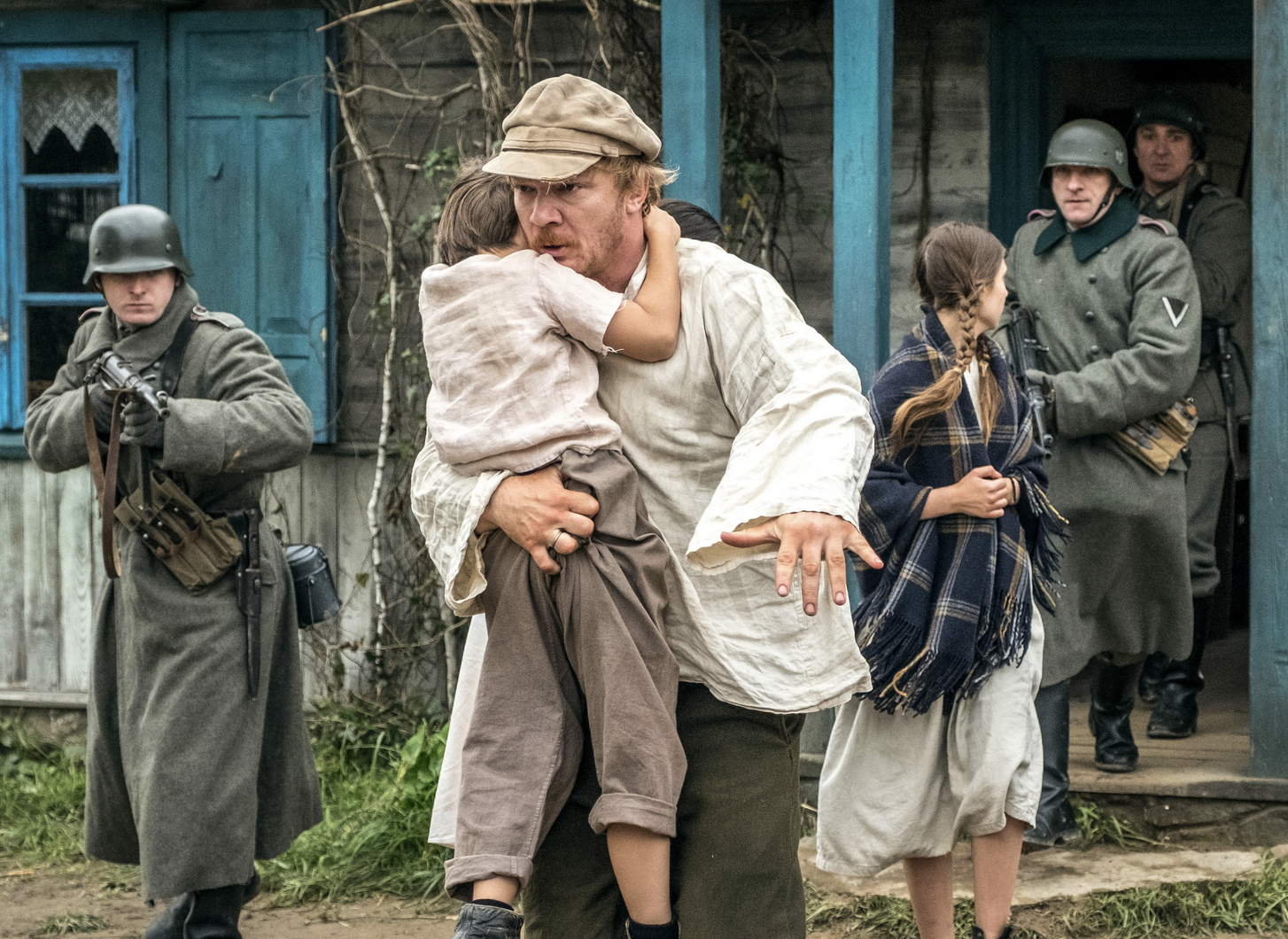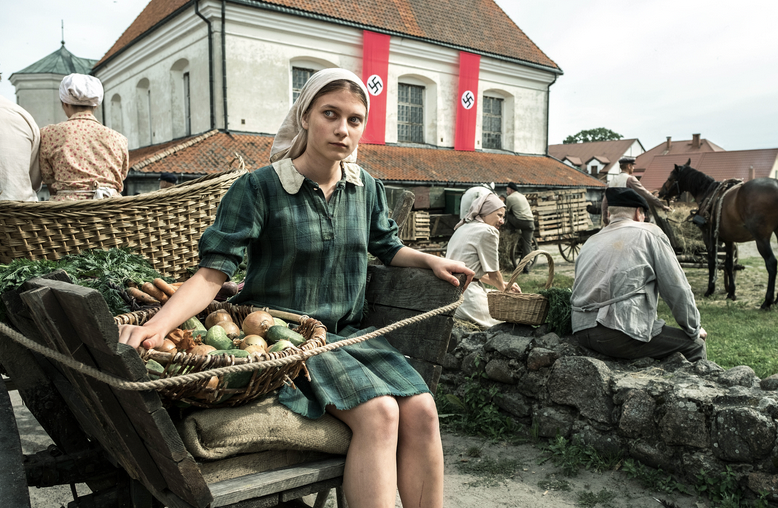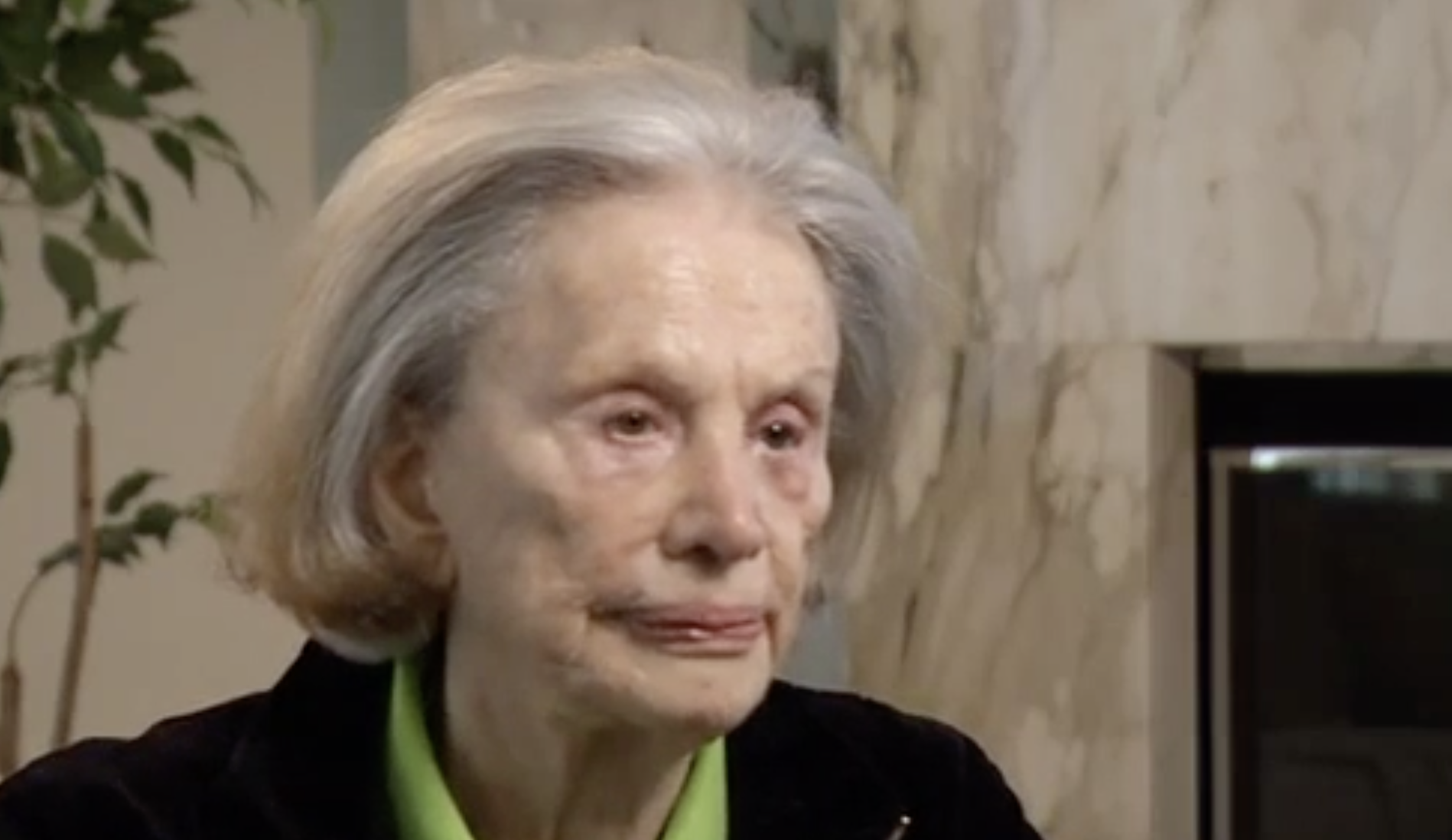My Name is Sara – A Story That Restores Faith and Fear
By Sue Weston and Susie Rosenbluth – Two Sues on the Aisle
What’s in a name? While this sounds like a simple question, the answer can be the difference between life and death, especially in 1942 Europe. My Name is Sara is a historical fiction, that offers a wider perspective of the impact of the Nazi occupation of Ukraine. It begins by sharing the desperate escape as two Jewish children, 13-years-old Sara (Zuzanna Surowy), and her slightly older brother Moshe (Konrad Cichon) flee the ghetto for refuge in the countryside.
They discover the peasants are only slightly better off than the Jews. Dispelling the illusion that safety lay outside the confines of Korets. The peasants are brutalized by the Germans and the partisans, both demanding food, taking everything, and leaving destruction in their wake with the promise to return for more. With iron determination, these children will themselves to survive. Their parents instruct them to do whatever it takes to live but to say Shema when all is lost.
Knowing that My Name is Sara is based on a true story, takes one’s breath away. Kindness, of strangers, the strength of family, and uncompromising ferocity to live are shown in stark contrast with callous brutality, as the German leaders dispassionately carry out orders.
Hiding in Plain Sight
After a harrowing escape from the ghetto, in search of safety in the countryside, Sara leaves her brother, to improve her chance of survival. She passes herself as an Orthodox Christian and finds work as a nanny for a farmer and his wife. Sara who had attended Catholic school despite being raised traditionally Jewish adopts the identity of her Christian best friend, Manya. Using her knowledge of rituals and observances, she convincingly fits in despite her lack of papers.
Sara blends in, asking little, attending to the children, going to church, helping in the fields observing everything but seeing nothing. She is subjected to tests, to prove she is not a Jew, making the sign of the cross, first helping the children finish bedtime prayers, and offered pork, which she greedily eats. When asked if she is just hungry, or likes pork, she pauses and answers ‘both’, causing the children to giggle.
German Oppression
Market day is perilous, with quotas continuing to be raised, leaving the family with little to sell. Senior Nazis dispassionately preside over the exchange while gun-wielding Germans, demand lower prices for bread the family is selling. The contrast is profound, Nazis in pressed uniforms and trucks, while the peasants are threadbare in a horse-drawn cart desperate to make ends meet.
The Real Deal
Sara Goralnik Shapiro was born in Korets, Poland, in 1930. In 1939, the town became part of Soviet Ukraine. Tipped off just in advance of a mass liquidation, her parents send Sara with her older brother from the ghetto to stay with a Ukrainian family they had paid handsomely to provide protection. Sara who was 11 at the time, is the only member of her family to survive. She kept her story a secret, sharing it later in life, and this provides context for the movie My Name is Sara.
This is the first fictional film for director/producer Seven Oritt who turns Sara’s story into an epic masterpiece, realistic, moving, and uncompromisingly mind-altering. Produced in association with the USC Shoah Foundation and with assistance from Sara’s son, Mickey Shapiro, Oritt provides an accurate representation of her experience, because life is more unbelievable than imagination.
The cinematography is so vivid one can almost smell the dusty fields, the graphic realism, and disturbing hones. Together, they make this production soulful. In one memorable scene, the family wagon passes below a tree branch hanging over the road. Suspending from the branch are three bodies, hung for the offense of harboring Jews. Fear in the faces of both women, as the reality of war, interrupts life, and death looms over them.
Complexities of Life
As if facing Nazi occupation is not enough, the movie introduces interpersonal struggles. Natya (Michalina Olszańska) married at 15 to an older man, Pavlo (Eryk Lubos) because he had a farm. She continues an affair with the man she loved, Pavlo’s cousin, meeting whenever possible for moments of intimacy, which did not go unnoticed. Pavlo is at odds with his older brother, who controls the family, and refuses to ask for help when his horse is taken just before the field needs to be plowed. Life is hard enough without petty rivalries, puts the yoke on his cow, before wearing it himself to get the job done. 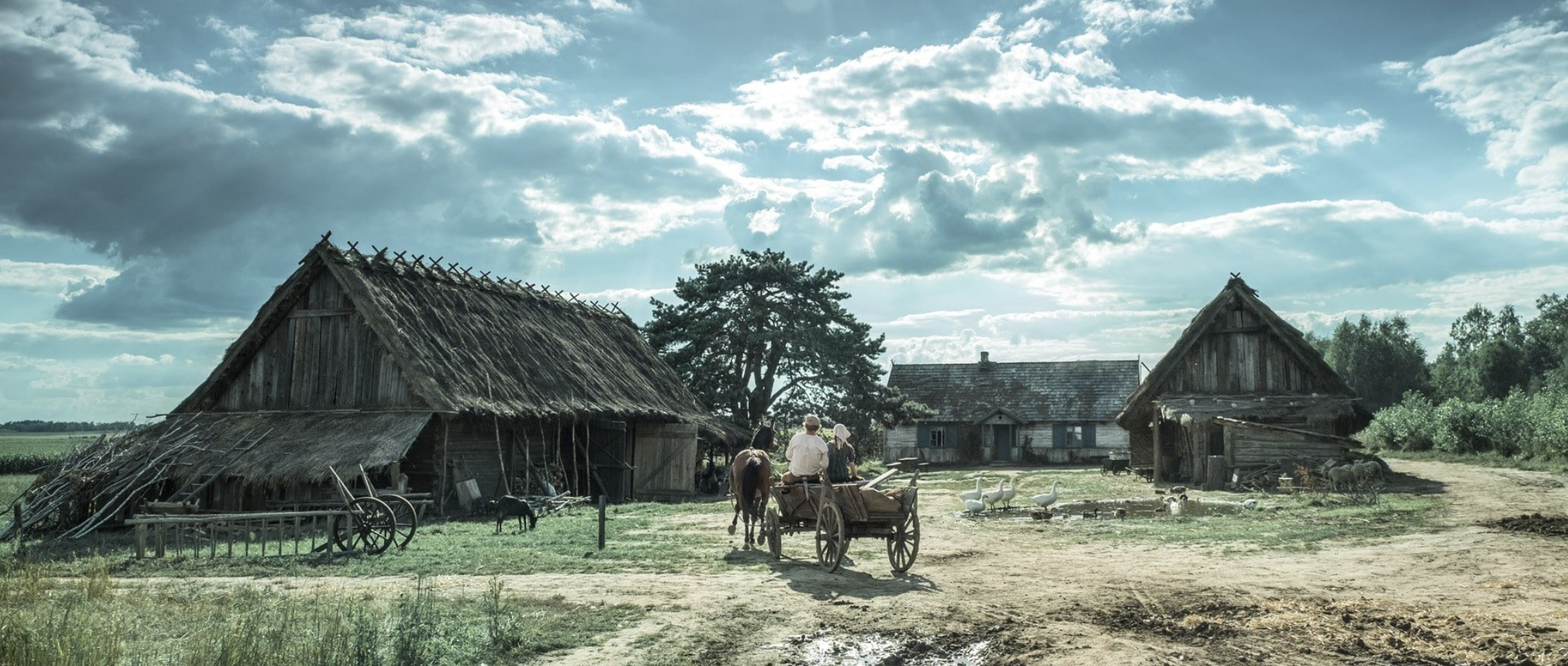
Never Forget
My Name is Sara was cast, shot, and filmed entirely on a desolate backdrop in Poland making this story feel literally ripped out of history, transported to another time, recounting an unbelievable story. Mickey Shapiro was compelled to tell his mother’s story ‘You can’t just close your eyes and pretend that the history goes away.” Sara’s story is unforgettable, showing how life can go terribly wrong. Soldiers carry out acts of violence, killing 30 peasants as retribution for each German lost to the Partisans, raping, pillaging, surrounded by so much death, and reminding ourselves that reality was likely much worse.
This should be a wake-up call a reminder of how fragile our existence is, and how power corrupts. We see how families cling together. Natya reminds Sara that she would do anything to protect her sons. Does she suspect that Sara is Jewish? We will never know, but Sara understands the risk she is forcing the family to take and intends to join the Patricians. Fortunately, the war ends, but not before a battle breaks out just meters from their door. Oritt even provides closure, with a happy ending.
***
Two Sues on the Aisle bases its ratings on how many challahs (1-5) it pays to buy (rather than make) in order to see the play, show, film, or exhibit being reviewed.
My Name is Sara received a 4 challah rating
4 Challah Rating

